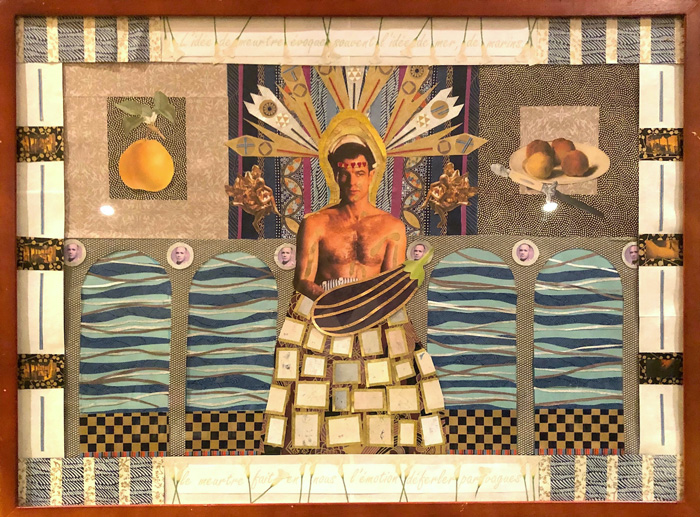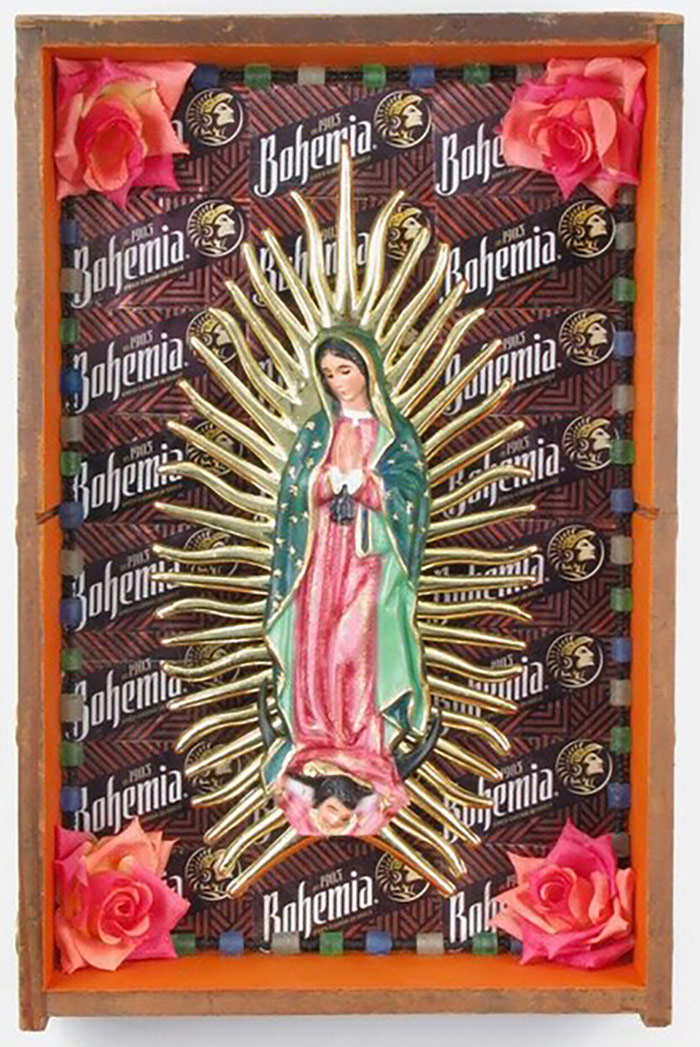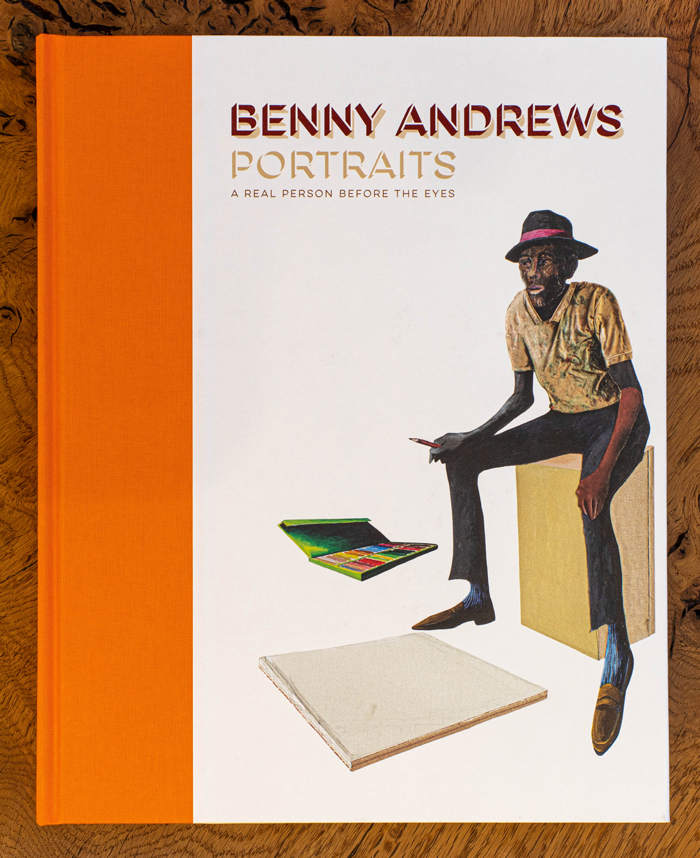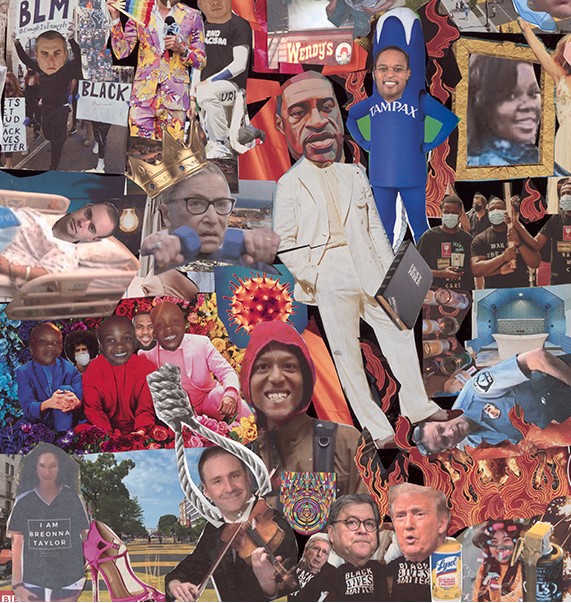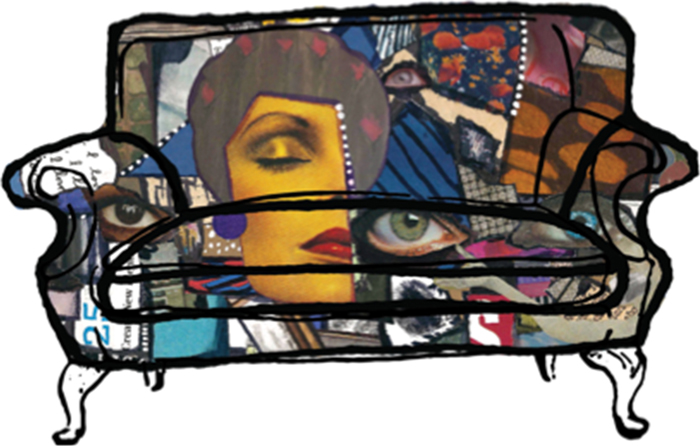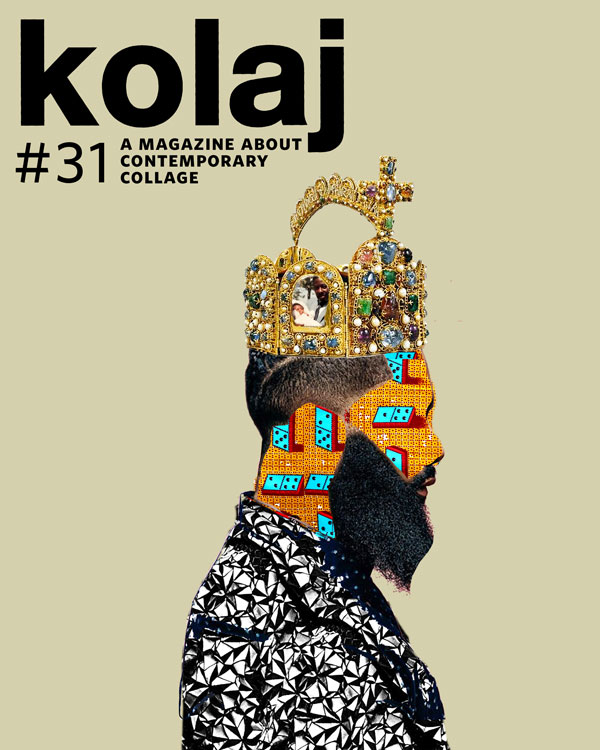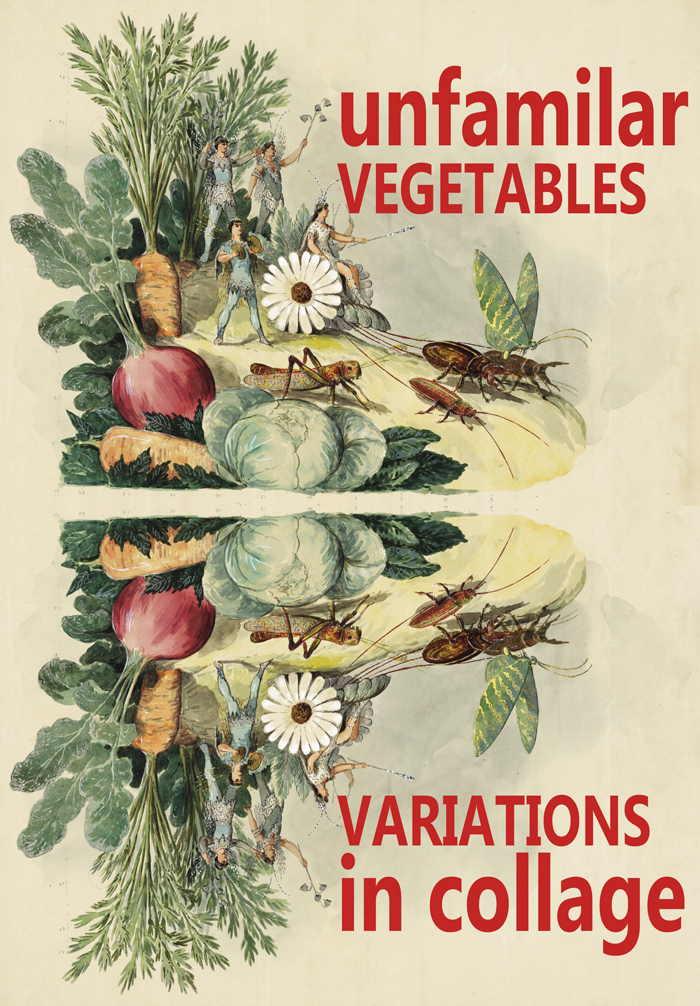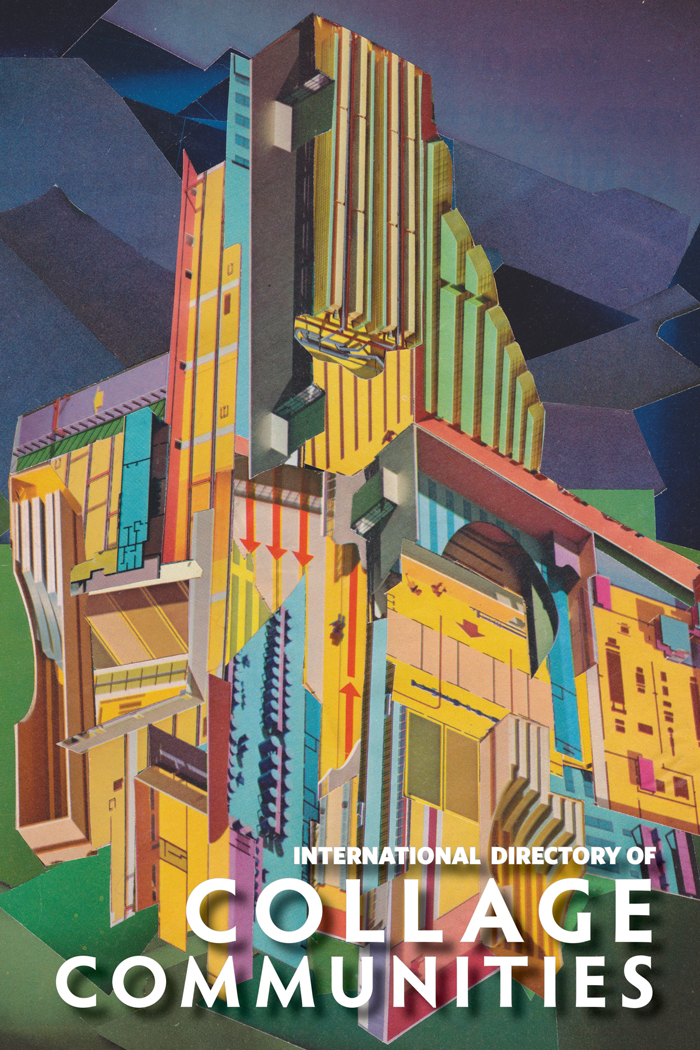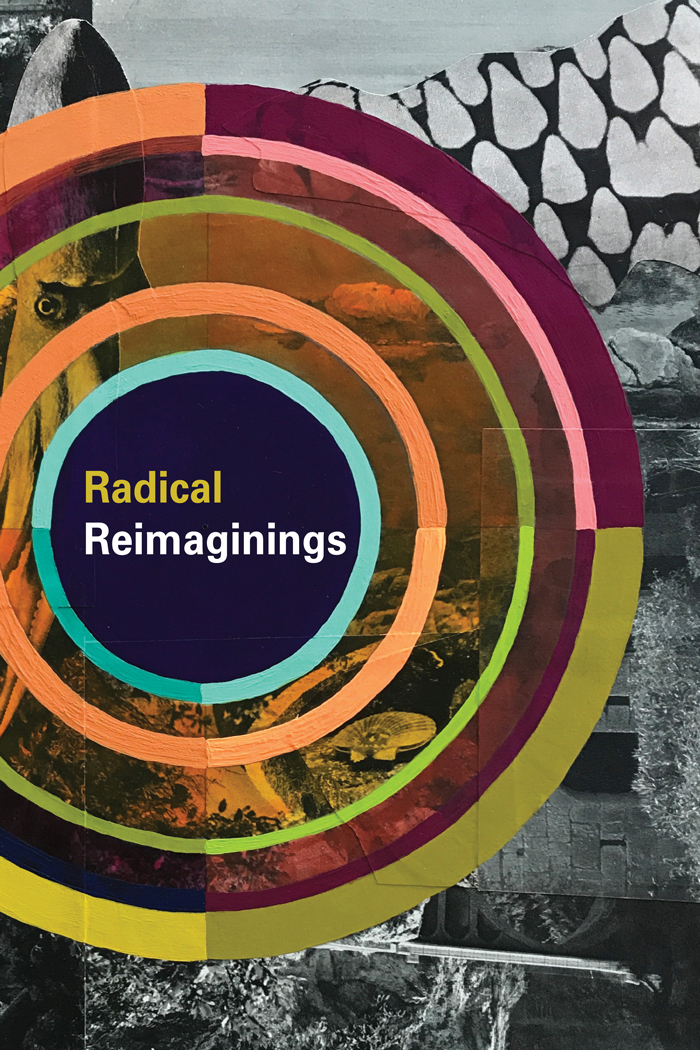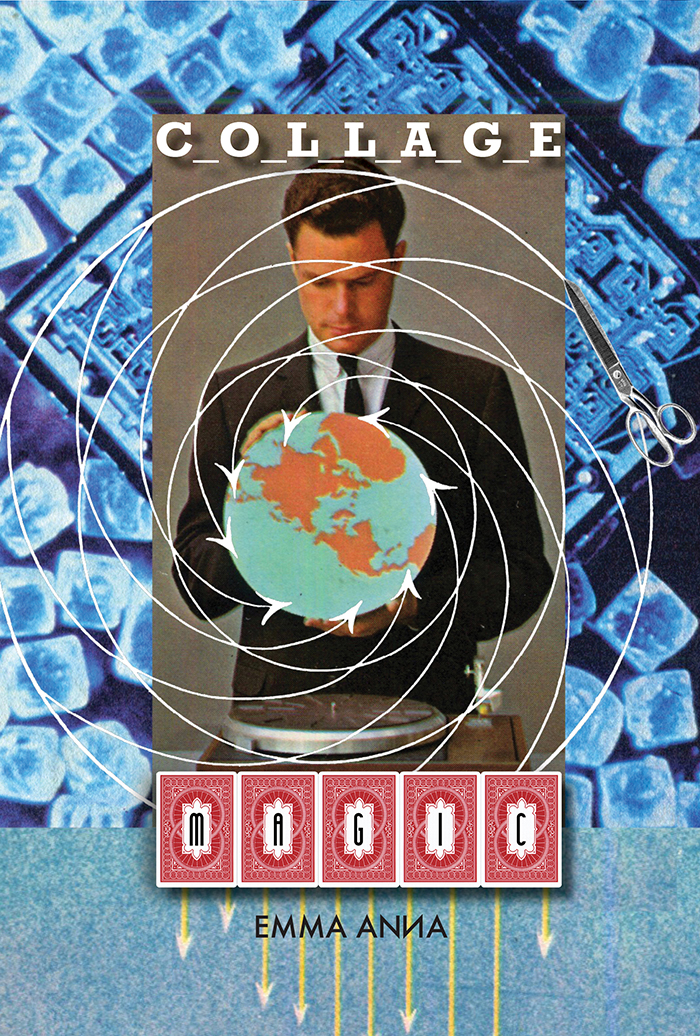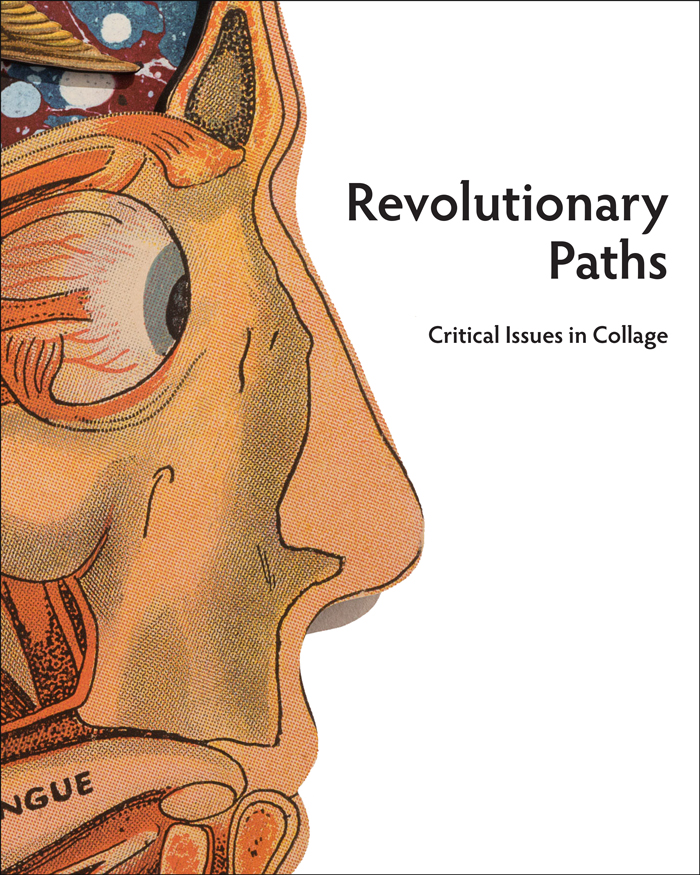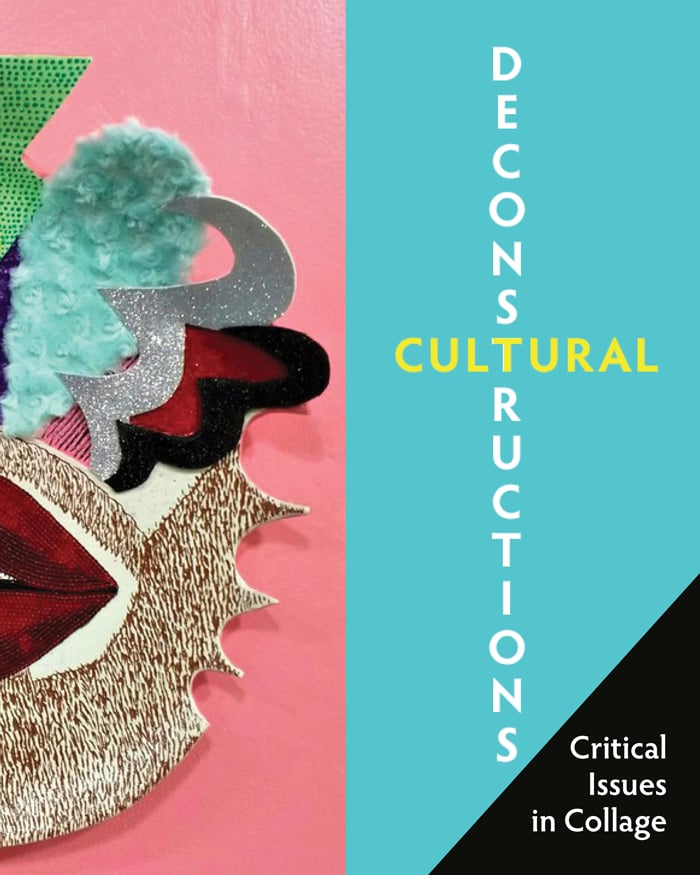![]()
MAGAZINE | INSTITUTE | CURRENT ISSUE | ARTIST DIRECTORY | SHOP
KOLAJ LIVE ONLINE | WORLD COLLAGE DAY
FROM THE ARTIST DIRECTORY
Locus of Joy
Montreal, Quebec, Canada. Last year at the age of 70, Will Aitken sat down and made his first collage. Much of Aitken’s work is film-based, re-creating freeze-frames from movies using Japanese Chiyogami decorative paper and film stills. Aitken says “collage is both a relief and a refuge, and a surprising locus of joy.” MORE
COLLAGE ON VIEW
1+2+3
At The Gallery at The Cultch in Vancouver, British Columbia, Canada, 1-28 February 2021. This exhibition features works of assemblage and collage by Canadian artists Valerie Arntzen, an assemblage artist who loves junk; Ginger Sedlarova, a collage artist and storyteller whose collages are sometimes novels and sometimes short stories; and Marilese Eilers, who has recently discovered the artistic freedom that collaging can provide. MORE
COLLAGE COMMUNITIES
The Little Dream Factory
TLDF began when a few artists started to come together for informal sessions in 2019 during which they would talk about art, opportunities for exhibitions, and inspiration. They later decided to formalize their group meetings and started involving the community at large with the intention of educating new friends and colleagues about collage. The group’s organizer, Madcollage, says “To us, trying is more important than being famous or recognized. We open our arms to every artist no matter where they are in their careers: from absolute beginners to consummate experts. We believe in cross pollination of ideas and everyone is encouraged to share without concern or fear of harsh criticism.” MORE
FROM KOLAJ 31
The Hidden Story
Amsterdam, The Netherlands. Guy Vording’s technique is somewhere between collage and decollage where the fragments are embedded in the substrate and the extraneous material is blocked by the black markings. In doing this, Vording changes the original story and tells a new one. "I’m always searching for a hidden story that I can bring back to life." A portfolio of Vording's work appears in Kolaj 31. MORE
FROM KOLAJ 31
Benny Andrews: Portraits
Benny Andrews: Portraits is a remarkable and well-documented collection of the artist’s portraits accompanied by three essays and an annotated timeline of the artist’s life. The book illustrates how Andrews’ choice of portraiture at a time when abstraction reigned supreme was a natural byproduct of his personal history and commitment showing Black life in his work. A review of the book appears in Kolaj 31. MORE
In the coming weeks, Kolaj Magazine will share Reports from the Curating Collage Workshop that took place in Fall 2020 with the University of Vermont's Fleming Museum. MORE
WORKSHOP REPORT
Say Their Names
by Elaine Tassy
Curator Rachel Monique Walker
Black lives matter. Pandemic. Like most of us, this was artist Elaine Tassy’s 2020. Originally a reimagining of the circumstances of George Floyd’s death, the work grew as the stories of Black deaths at the hands of police and white supremacy were coming in thick and fast. Part conversation with herself during lockdown, part lament and part exercise in irony, Say Their Names is a site for powerful reimagining. MORE
COLLAGE BOOKS
Art Doesn’t Have to Match Your Sofa
Rockport, Texas-artist Kelly Schaub writes, "Why Art Doesn’t Have to Match Your Sofa? The serious reason is to get society to recognize the value of original art, and especially artists in their community. I’m always disappointed when someone says they love art, yet their home is filled with mass-produced décor from a bigbox store." The series of three books features established and beginning collagists from Canada, Colombia, Denmark, England, Finland, Greece, Italy, Mexico, Namibia, Russia, Scotland, Spain, and across the United States. MORE
CALL TO ARTISTS :: Artist Lab: Art Meets History in New Mexico
Deadline: 28 February 2021 :: LEARN MORE
Recent Publications
Our goal with every issue is that Kolaj Magazine is essential reading for anyone interested in the role of contemporary collage in art, culture, and society. We not only hope you enjoy the articles and images in Kolaj #31, we hope it leads you to asking great questions.
CURRENT ISSUE
Kolaj #31
If Kolaj #31 has an overarching theme, it would be about how artists are pulling from the past to speak to the now. We swim in a stream of ideas, some of which come at us so quick and hard that we rarely have a chance to consider where they come from…or where they are going. What ever happened to those stolen collages? Why do we think these things about some people but not others? Why can’t we name five scientists who are women? What is my place in the art world? How do I speak to my community? These are deep, critical questions that artists are trying to make sense of for themselves and for the people around them. It is exciting to tell their stories. Learning about them, what they did, how they work makes us better artists, writers, and, hopefully, better people. Collage is powerful magic. MORE
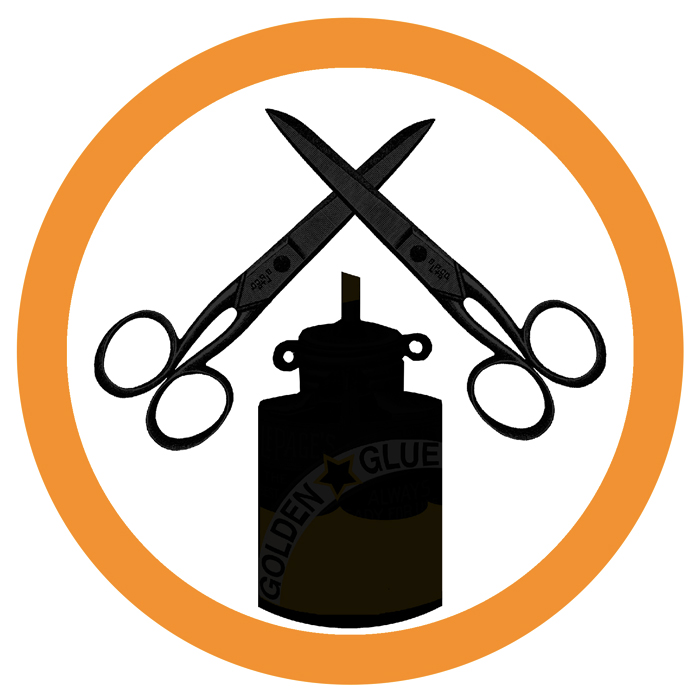
COLLAGE BOOK
Unfamiliar Vegetables: Variations in Collage
Unfamiliar Vegetables is a collection of collage where each of the fifty artists interpreted, in their own way, Carlotta Bonnecaze’s 1892 Carnival float design Familiar Vegetables. Project organizer Christopher Kurts observed, “Unfamiliar Vegetables is an experiment in controlled chaos….tiny variations within each artist’s creative sphere accumulate until the outcomes are as unique as the people creating them.” MORE
COLLAGE COMMUNITIES
The International Directory of Collage Communities
The 104-page book is a survey of collage networks, guilds, communities, and projects as well as online efforts and groups focused on collage research. For each community, the directory presents their key activities, mission, how to join, and a bit of their history. Copious images illustrate the book. MORE
BOOK
Radical Reimaginings
The curators of the 96-page book invited artists who use collage in their practice to put forward a work of art that offers a visual narrative that speaks to the unprecedented change unfolding in 2020. An essay by Ric Kasini Kadour reflects upon collage's unique ability to imagine new realities. Forty artists from nine countries and multiple Indigenous peoples—Salish-Kootenai/Métis-Cree/Sho-Ban, Tlingit/Nisga’a, Oglala/Lakota, and Seneca Nation—offer a variety of perspectives. The voices of Black, Latinx, Native, and white Americans mingle with those from Chile, Colombia, Mexico, Peru, Argentina, Canada, France, and Germany. Artwork is accompanied by a statement in which the artists describe how they want to reimagine the world. MORE
BOOK
Collage Magic
by Emma Anna
Part autobiography, part fantasy, Emma Anna’s vision of The New Old World (aka The NOW) fuses vintage ephemera with modern imaging technologies. Emma shapes this strange world by using the pen tool from Adobe Photoshop as her magic wand, in the process declaring herself to be a “collage magician”. Part artist book, part document of art making, Collage Magic, from La Casa Verde Editions, is Emma Anna’s journey through magic and art. MORE
BOOK
Revolutionary Paths
When the collage is presented in exhibition, it is often done so without the critical framework granted other mediums. In "Revolutionary Paths: Critical Issues in Collage", exhibition curator Ric Kasini Kadour presents examples of collage that represent various aspects and takes on the medium. Each work in the exhibition represents the potential for deeper inquiry and further curatorial exploration of the medium. MORE
BOOK
Cultural Decontructions
Collage is unique as a medium in that it uses as its material artifacts from the world itself. To harvest those fragments, the artist must first deconstruct culture; they must select, cut, and remove the elements they do not wish to use and then reconstruct work that tells a new story. In "Cultural Deconstructions: Critical Issues in Collage", exhibition curator Ric Kasini Kadour presents examples of collage artists who are deconstructing identity as a way to critique culture. MORE
Our goal with every issue is that Kolaj Magazine is essential reading for anyone interested in the role of contemporary collage in art, culture, and society. Each issue of Kolaj Magazine is dedicated to reviewing and surveying contemporary collage with an international perspective. We are interested in collage as a medium, a genre, a community, and a 21st century art movement.
